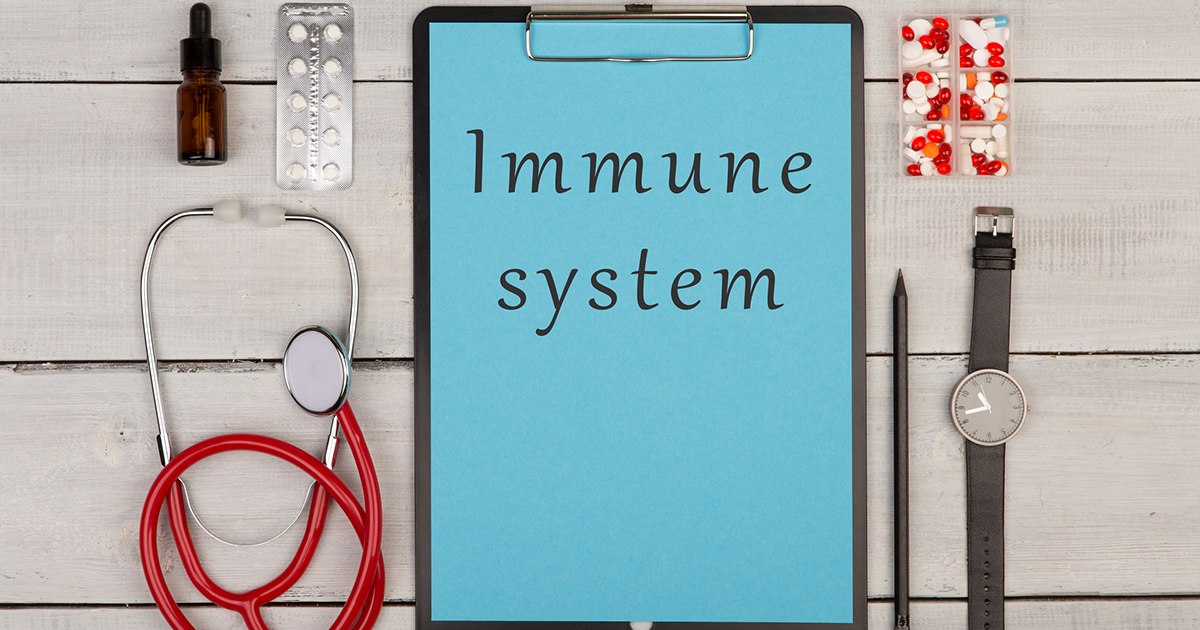27 Glaring Gluten Red Flags You Might Be Mistaking for Just Another Day
Gluten intolerance isn't always as obvious as a stomachache after eating bread. While celiac disease is a well-known autoimmune disorder that affects about one percent of the population, countless others experience non-celiac gluten sensitivity (NCGS) without realizing it. The tricky part? Gluten-related symptoms can masquerade as everyday ailments—fatigue, headaches, skin issues, or even mood swings—making it easy to overlook the real culprit hiding in your diet. We’ve expanded our list to 27 glaring gluten red flags that could be signaling your body’s intolerance. If these symptoms sound all too familiar, it might be time to talk to a doctor about getting tested. And if you’ve already been diagnosed but still struggle with persistent symptoms, a two-week elimination period without gluten could provide valuable insight. Read on to uncover the surprising ways gluten intolerance might be affecting your health—and what you can do about it.
1. Depression And Anxiety

Research indicates individuals with gluten intolerance are more likely to experience general anxiety disorder, depression, and panic disorders than those who are not intolerant to gluten. Another study reported forty percent of individuals with self-diagnosed gluten intolerance experienced significant anxiety. Gluten can affect depression by causing abnormal serotonin levels in the brain and decreasing the number of beneficial bacteria in the gut, which is also known as the 'second brain.' When certain gluten proteins are digested, they form peptides that interfere with a patient's central nervous function.
2. Autoimmunity

According to quite a lot of detailed research, if individuals have been diagnosed with celiac disease, they are also prone to other autoimmune diseases such as Crohn's disease, ulcerative colitis, type one diabetes, and autoimmune thyroid disease. Autoimmune conditions occur when the immune system mistakenly attacks the body's tissues. These conditions make patients particularly susceptible to inflammatory foods such as gluten, dairy, and refined sugar. As such, someone diagnosed with any kind of autoimmune condition may also be intolerant to gluten. Essentially, this boils down to individuals simply being more susceptible to other issues with their immune system if they already have one autoimmune condition of any kind.
3. Headaches

Headaches and migraines can be a result of a lot of different things, but for someone with gluten intolerance, they might pop up more often than not. Approximately ten to twelve percent of the Western population experiences regular migraines, but research shows individuals who are gluten intolerant might be more prone to getting them than those who do not have to worry much about eating food that contains gluten. If someone stays hydrated throughout the day, exercises regularly, gets enough sleep at night, and does not drink alcohol, their migraines may be a sign of gluten intolerance.
4. Fatigue

Fatigue is a very vague symptom associated with countless health problems. But if an individual feels quite fatigued all the time, especially after eating something containing gluten, it is a clear sign they might be intolerant to it. Research shows approximately sixty to eighty-two percent of individuals who are intolerant to gluten are quite a bit more prone to experiencing tiredness and fatigue after eating foods that contain gluten. One study also found gluten intolerance may lead to iron-deficiency anemia, which also often contributes to chronic fatigue in those who suffer from it.
5. Skin Problems

Gluten is a highly inflammatory food, which can affect many body systems, especially the endocrine system. Celiac disease is often responsible for a blistering skin condition known as dermatitis herpetiform. Several other skin conditions are also frequently linked to gluten intolerance, including psoriasis, alopecia areata, and chronic urticaria. Symptoms of these to watch out for include blistering, rashes, sores, red spots, and general inflammation of the face, limbs, or trunk of the body. Many of these skin conditions and their symptoms improve quite dramatically when gluten is removed from the patient's diet.
6. Neuropathy

Individuals who are gluten intolerant may experience painful inflammation in their joints and muscles. Along with pain and inflammation, those dealing with gluten intolerance may also experience neuropathy or tingling and numbness in their arms and legs. Neuropathy is also quite commonly associated with vitamin B12 deficiency and diabetes. It is also common with frequent alcohol consumption. Although the precise cause of this condition is not known, several studies have shown neuropathy may be due to the presence of certain antibodies related to gluten intolerance.
7. Bloating

Bloating occurs when the stomach feels swollen or full of gas. It is the digestive system's way of letting an individual know something is wrong in their body, so it is important not to ignore this symptom. Although bloating can occur for countless different reasons, gluten intolerance is a major one of these, particularly when other symptoms are present. According to one study, approximately eighty-seven percent of non-Celiac disease participants reported feeling bloated after eating gluten. If bloating occurs after every meal containing gluten, an individual may be gluten intolerant.
8. Abdominal Pain

According to research, abdominal pain is the single most common symptom of gluten intolerance. One study stated approximately eighty-three percent of individuals dealing with gluten intolerance reported pain as their most predominant symptom. Pain may occur while eating gluten or directly after. Affected individuals may also experience pain hours after eating a glutinous meal when their digestive system is trying to break it down. Painful bowel movements are also a sign of gluten intolerance. Keeping a food diary is the best way to know precisely which foods are problematic.
9. Diarrhea And Constipation

Another common symptom of gluten intolerance is diarrhea and constipation. If either of these two signs is occurring regularly, it could be due to gluten intolerance or allergy to gluten. Patients with celiac disease experience inflammation in the digestive tract after consuming anything with gluten, which damages the gut lining, leading to poor nutrient absorption, digestive discomfort, and frequent diarrhea and constipation. Gluten can also cause significant digestive discomfort in individuals who do not have celiac disease as well. More than fifty percent of gluten-sensitive individuals regularly experience diarrhea, while about twenty-five percent experience frequent constipation. Unfortunately, patients with celiac disease may also experience pale and unpleasant-smelling feces due to poor nutrient absorption. Constant diarrhea is cause for concern, as this symptom causes the loss of electrolytes, dehydration, and fatigue.
10. Weight Loss

A sudden and unexpected weight change is a cause for concern and can indicate numerous different illnesses. A gluten allergy is a common disorder that causes unexpected weight loss and is a common side effect of undiagnosed celiac disease. In particular, one study of patients with celiac disease discovered two-thirds had lost weight in just six months leading to their diagnosis. The weight loss can be explained by multiple digestive symptoms, along with poor nutrient absorption due to the intestines becoming damaged from gluten. Individuals can also lose weight due to eating less because of the pain experienced when eating certain foods that contain gluten.
11. Brain Fog

Experiencing brain fog means that an individual experiences difficulty concentrating, or experiences short-term memory lapses. Patients may also experience losing their train of thought in conversations or when writing, and they may even become confused and disoriented. Many individuals further describe brain fog as feeling cloudy and having mental fatigue, with difficulty focusing on simple tasks. Brain fog is another common symptom of gluten intolerance, and patients with celiac disease, non-celiac gluten sensitivity, and a brain disorder called gluten ataxia all report different degrees of brain fog. Approximately forty percent of gluten-intolerant patients experience brain fog, and this symptom is believed to be caused by a reaction to specific antibodies in gluten, but the exact antibody is unknown.
12. Iron-Deficiency Anemia

As the most common nutrient deficiency in the world, accounting for anemia in five percent of women and two percent of men in America, iron-deficiency anemia is another common symptom of gluten intolerance. Iron deficiency causes numerous symptoms such as low blood volume, dizziness, pale skin, shortness of breath, headaches, and weakness. As previously mentioned, nutrient absorption in the large intestine is impaired, causing a decrease in the amount of iron being absorbed from food as well. Iron deficiency anemia is also one of the first symptoms of celiac disease a doctor will notice with a simple blood test. Recent research suggests that iron deficiency may be prevalent in both adults and children with celiac disease too.
13. Muscle And Joint Pain

Muscle and joint pain are also signs of gluten intolerance patients should not ignore. Many individuals are surprised to experience these symptoms because muscles and joints do not seem to have anything to do with their gastrointestinal system. However, the gluten an individual ingests sets up inflammation throughout their body when their immune system attacks it as a pathogen or toxin. This inflammation extends to their muscles and joints, which is why they feel aches and pains in these areas. In some patients, the muscle and joint pain they feel resembles the nearly unbearable pain associated with fibromyalgia. In this condition, there are paired trigger points along the body that hurt when they are even lightly touched.
14. Excessive Gas

The inability to digest gluten properly often leads to a build-up of gas. However, some researchers are beginning to believe gluten is not actually the cause of excessive gas. Gluten is a protein and gas is most often caused when bacteria attack carbohydrates that enter the large intestine. In the case of an individual with gluten intolerance, these carbohydrates may be substances called Fermentable Oligo-, Di-, Mono-saccharides, and Polyols, or FODMAPs. These types of carbohydrates are often found in wheat, rye and barley products. The body does not digest FODMAPs well, even if the individual isn't intolerant to gluten. As a result, bacteria cause them to ferment in the colon and produce gas. Some researchers believe FODMAPs not only play a role in developing excessive gas but in the joint and muscle pain associated with gluten intolerance.
15. Aerophagia

Aerophagia is when an individual compulsively swallows a lot of air. In this condition, so much air is swallowed that it leads to bloating and other uncomfortable symptoms of the gastrointestinal tract such as belching, flatulence, and a distended abdomen. Swallowing air is clearly a cause of too much air in an individual's stomach, and it can contribute to the already unpleasant symptoms experienced by those dealing with gluten intolerance. Most of the air pulled into the stomach is released through belching, while the rest of it is either absorbed by the small intestines or released through the anus. Doctors are not sure why individuals who are gluten intolerant also swallow a lot of air when they eat.
16. Gastroesophageal Reflux Disease

Gastroesophageal reflux disease (GERD) is another sign that might point to gluten intolerance. It occurs when the sphincter that closes off the esophagus from the stomach does not close all the way. Because of this, what's in the stomach can reflux back into the esophagus, which is the tube that connects the stomach to the mouth. The symptoms of gastroesophageal reflux disease are heartburn, and sometimes patients can taste the acid of the stomach juices at the back of their mouth. Some affected individuals do not have heartburn with GERD, but experience an unproductive cough and trouble swallowing. They may even have asthma symptoms. Gastroesophageal reflux disease can be a consequence of the inflammation that occurs when the body attacks the gluten protein.
17. Hormonal Imbalances and Irregular Periods

Gluten intolerance can wreak havoc on hormonal health, leading to irregular menstrual cycles, worsened PMS symptoms, and even fertility issues. The connection lies in chronic inflammation and the body’s autoimmune response to gluten, which can disrupt endocrine function. Women with undiagnosed celiac disease often experience earlier menopause or struggle with unexplained infertility. For men, gluten intolerance may contribute to reduced testosterone levels. If you’ve been experiencing unusual hormonal fluctuations or menstrual irregularities without a clear cause, gluten may be a hidden factor.
18. Poor Recovery from Exercise

If you feel unusually sore for days after working out or experience persistent muscle fatigue, gluten intolerance might be slowing your body’s ability to repair itself. The chronic inflammation associated with gluten sensitivity can hinder muscle recovery, increase stiffness, and cause prolonged post-exercise soreness. Athletes with undiagnosed gluten intolerance often find their endurance and performance improve dramatically after eliminating gluten from their diet.
19. Sudden Mood Swings and Irritability

Beyond anxiety and depression, gluten intolerance can contribute to abrupt mood swings, heightened irritability, or even bouts of unexplained anger. This is due to the gut-brain connection, where gluten-induced inflammation affects neurotransmitter balance, leading to emotional instability. If you notice feeling unusually short-tempered, frustrated, or emotionally reactive after meals, it may be worth considering the impact of gluten on your mental health.
20. Frequent Mouth Sores or Canker Sores

Recurrent mouth ulcers or canker sores could be an overlooked sign of gluten intolerance. The immune response triggered by gluten may cause inflammation in the mucous membranes, leading to painful sores inside the mouth. Many people who cut out gluten report fewer occurrences of these irritating lesions. If you constantly battle mouth ulcers, gluten might be irritating your immune system from the inside out.
21. Increased Sensitivity to Cold and Temperature Changes

Do you frequently feel cold, even when others are comfortable? Are your hands and feet often icy, regardless of the season? Gluten intolerance can contribute to poor circulation and disrupt thyroid function, leading to symptoms similar to hypothyroidism. If you’re always bundling up while others are fine, it may be worth exploring gluten as a possible cause.
22. Chronic Sinus Issues and Nasal Congestion

If you constantly feel like you have a mild cold or suffer from chronic sinus congestion, gluten could be contributing to inflammation in your nasal passages. Many people with gluten sensitivity experience persistent stuffiness, postnasal drip, or sinus pressure without having allergies. Cutting out gluten has helped some individuals breathe more easily and reduce their reliance on antihistamines.
23. Hair Loss or Thinning Hair

Unexpected hair loss or thinning could be a symptom of gluten intolerance, particularly if it is tied to an autoimmune reaction. When the body perceives gluten as a threat, it may attack the hair follicles, leading to excessive shedding. Many people with undiagnosed gluten intolerance also have nutrient absorption issues, particularly with iron and B vitamins, which are critical for hair growth. If your hair is falling out without explanation, it’s worth considering whether gluten could be interfering with your body’s ability to absorb essential nutrients.
24. Unexplained Low Vitamin and Mineral Levels

Even with a healthy diet, some people struggle with persistent nutrient deficiencies, such as low iron, vitamin D, magnesium, or B12. This is because gluten can cause intestinal damage or inflammation that impairs nutrient absorption. If blood tests reveal ongoing deficiencies despite taking supplements or eating a nutrient-rich diet, it may be time to consider whether gluten is interfering with your gut’s ability to absorb what your body needs.
25. Persistent Itchy Skin Without a Rash

Many people with gluten intolerance experience ongoing skin discomfort, such as itching, tingling, or burning sensations, even when no visible rash is present. This can be due to internal inflammation and histamine release triggered by gluten. While gluten-related skin conditions like dermatitis herpetiformis are well-documented, some individuals with non-celiac gluten sensitivity experience generalized itching without a clear dermatological cause.
26. Frequent UTIs or Bladder Irritation

For some individuals, gluten intolerance can contribute to urinary tract discomfort, including increased frequency, urgency, or even symptoms similar to interstitial cystitis (IC). The inflammatory response triggered by gluten may affect the bladder lining, leading to irritation and discomfort. If you experience persistent bladder issues with no clear bacterial cause, gluten sensitivity may be worth investigating.
27. Trouble Sleeping and Frequent Night Wakings

If you struggle with insomnia, restless sleep, or frequently waking up during the night, gluten may be interfering with your sleep cycles. The inflammatory response associated with gluten intolerance can increase cortisol levels (the stress hormone), making it harder to fall and stay asleep. Additionally, gluten can contribute to blood sugar fluctuations that disrupt the body’s ability to maintain restful sleep. Many individuals who eliminate gluten report deeper, more restorative sleep and waking up feeling refreshed rather than fatigued.
The First Step Toward Healing

Gluten intolerance can manifest in ways far beyond digestive discomfort, affecting everything from mood and sleep to skin health and chronic pain. Because these symptoms often overlap with other conditions, many people go years without realizing that gluten is the underlying cause of their struggles. Identifying a gluten intolerance isn't always straightforward, but the first step is paying close attention to how your body responds to certain foods. If you recognize several of these red flags in your own life, consider speaking with a healthcare provider or trying a temporary elimination diet to assess your body's reaction. Removing gluten—even for just a few weeks—could lead to noticeable improvements in energy levels, mental clarity, and overall well-being. Remember, your body is always communicating with you. By tuning in and taking action, you can unlock a healthier, more vibrant life, free from the hidden burdens of gluten intolerance.